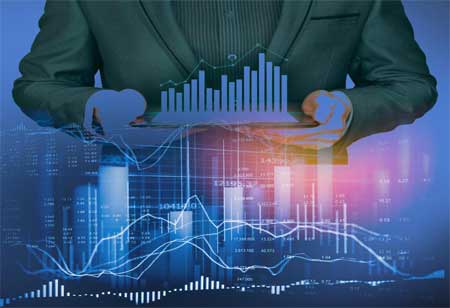THANK YOU FOR SUBSCRIBING
Important Cybersecurity Practices for Remote Accounting Organisations
As most companies are now accustomed to remote working and are choosing to continue with the same, the importance of cybersecurity has risen significantly.

By
Apac CIOOutlook | Thursday, May 18, 2023
Stay ahead of the industry with exclusive feature stories on the top companies, expert insights and the latest news delivered straight to your inbox. Subscribe today.
Remote accounting individuals are heavily reliant on digital communications to function remotely. As a result, they need to accommodate cybersecurity practices to do their jobs safely.
FREMONT, CA: As most companies are now accustomed to remote working and are choosing to continue with the same, the importance of cybersecurity has risen significantly. Specifically, the accounting field consisting of such employees is reliant on digital communications to function remotely and also needs to accommodate cybersecurity practices to function efficiently and safely.
Focusing on Cybersecurity for Remote Accounting Employers
Over the years, companies have reaped the benefits of outsourcing financial management to remote accounting professionals. This has helped me make well-informed financial decisions that drive profits and save time. In addition, remote accounting allows individuals to access up-to-date financial information and work with accountants across the globe.
As all of these advantages come from remote accounting, cybersecurity automatically becomes a priority, as sensitive information is shared with accountants over the internet. This confidential information includes payroll records, tax filings, bank account details, and other information. If unauthorised individuals gain access to such information, they could utilise it for malicious purposes.
A remote accountant is required to be aware and up-to-date on security protocols and also follow best practices. This consists of using strong passwords, encryption of sensitive information, avoiding public Wi-Fi networks, and constantly updating antivirus softwares.
Enforcing Safe Remote Access for Data Protection
Data can be protected by using a virtual private network (VPN).
A VPN is a network technology that constructs a secure connection between a user and the network they are connected to. Through a VPN, the remote accountant and their clients can access data safely and securely, across the globe.
Another method to secure data is two-factor authentication (2FA) or multifactor authentication (MFA). 2FA necessitates two different forms of authentication, like a combination of a pin code and a fingerprint, to access sensitive data. Similarly, MFA requires multiple forms of authentication to access information.
For additional security, it is important to encrypt all information transmitted over a network.
Leveraging Encryption and Authentication Tools for Data Safety
The protection of sensitive data, especially while being transmitted over the network, is of vital importance. Encryption converts data into code such that only the accountant and the client have access to it. Both parties can also use digital and SSL certificates for authentication. A secure file transfer protocol must also be implemented while transferring sensitive data. For instance, some protocols involve encrypting data in transit to ensure unauthorised users do not have access to it. The tools used must be regularly tested and updated, as some encryption algorithms can become obsolete and new vulnerabilities can emerge.
Monitoring Systems for Suspicious Activity
To effectively inspect systems for suspicious activity, individuals must combine automated tools, such as firewalls, prevention systems, antivirus software, and human oversight. The automated tools identify and mitigate malicious activities on the network. Individuals can also manually conduct vulnerability scans to address potential threats.
By staying up-to-date on cybersecurity threats and practices, organisations can protect their information better.





